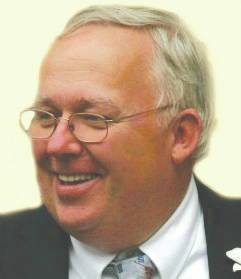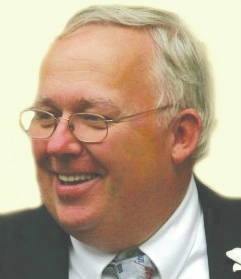The marriage of Christ is not taught much in churches anymore, but the church is the Bride of Christ (2 Corinthians 11:2; Revelation 21:2,17). Christ is referred to as a groom in several passages (Matthew 9:15; 25:1,6; John 3:29; Revelation 21:2).
Furthermore, to make sure this is more than symbolic, the events of the marriage and marriage supper are prophecy; see Revelation 19:7-9.
The church, or bride, is anyone who places their faith in Christ from the time of His resurrection until the rapture.
The rapture will take place at an unknown time in the future. It may be yet in our lifetimes, it may be a hundred years from now, but like all Biblical prophecies, it will come to pass.
If you are unfamiliar with the rapture, it is when Jesus will appear in the air and remove all true believers in Christ. Those that have already passed into eternity and those still alive are snatched out of this world and taken with Christ to His home in heaven.
The rapture is in dozens of passages in the Bible, but the most vivid is 1 Thessalonians 4:16-18, “For the Lord himself shall descend from heaven with a shout, with the voice of the archangel, and with the trump of God: and the dead in Christ shall rise first: Then we which are alive and remain shall be caught up together with them in the clouds, to meet the Lord in the air: and so shall we ever be with the Lord. Wherefore comfort one another with these words.”
Christ told His disciples in John 14:1-4 that His Father’s house had many mansions, that He was going to His Father house to prepare a place for them, and that someday He would come back, and take them back to always be with Him.
As modern-day Christians, we read Jesus’ words of that passage and think of eternity; of death or the rapture and our everlasting life with Him. But to the crowd sitting there, first century Jews, what they heard was a description of a wedding ceremony.
The phases of a Jewish marriage ceremony in Jesus’ day had been their tradition for over a millennium.
First, the Father of the Groom would choose a bride. The story of Issac and Rebekah (Genesis 24) is a good representation of this. The story of Rebekah also teaches us the bride must say “yes” to the offer (Genesis 24:57-58).
Step two is the exchanging of gifts. The Father of the Groom would “pay” for the bride by giving a price to the Father of the bride. Also, the Father of the bride would provide a dowry to his daughter. After the exchanging of gifts, the espousal would become legally binding. In Matthew chapter one, Joseph contemplates divorcing Mary. He does not yet know about her still being a virgin, but she is with child. What is a man to think? They were only espoused (engaged), but with the exchanging of gifts, the union was already legal, hence the need for a divorce.
The engagement became legal with the exchange of gifts. At this point, the groom would go and prepare a place for the bride. The Groom’s Father would then decide when everything for his future daughter-in-law was ready. When Daddy was satisfied, he would tell the Groom to fetch his bride.
With the bride taken, back at the Father’s house, the wedding ceremony took place, followed by a seven-day marriage feast.
If it were a coincidence, the similarities between the church, the rapture, and the Jewish wedding ceremony would be uncanny. But, God does everything with a purpose.
God The Father has chosen the church, every believer from the resurrection of Christ until the rapture, as the bride (Ephesians 1:3-4; 2 Corinthians 11:2).
The purchase price for the bride is the blood of the Son (Acts 20:28, 1 Corinthians 6:19-20).
God the Father is the Father of the Groom, as it is His only begotten Son, that shed His blood, paying the price for our sins. He also acts as Father of the Bride as He pays the dowry in the form of the Holy Spirit. The Holy Spirit is given to us and never taken away. These gifts seal the wedding contract, making it all legal. At salvation, when we receive the Holy Ghost, we are engaged to Christ (Ephesians 1:13-14).
Currently, Christ, the Groom, is back at His Father’s house preparing a place for us, His future bride (John 14:1-4).
At a future date, when the Father is ready, He will tell the Groom to fetch His bride and bring her home. This event is the rapture (Mathew 24:36; John 14:3; 1 Thessalonians 4:13-18).
Revelation 19:7-9 describe the marriage and wedding supper.
Are you saved? Are you looking for the Groom? It is only a matter of time – the trumpet will sound the Groom will snatch us away to the home He has prepared for us.
Preacher Johnson is Pastor of Countryside Baptist Church in Parke County Indiana. He can be contacted via email: [email protected] or regular mail: 410 S. Jefferson St. Rockville IN 47872. Sermons and archived Preacher’s Point can be found at www.preacherspoint.wordpress.com.




